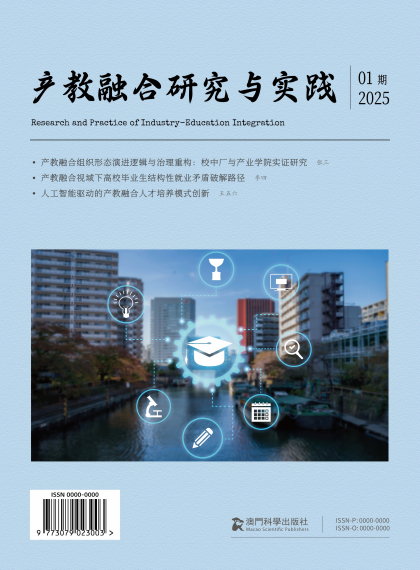摘 要:
随着职业院校产教融合模式的不断深化,教师的参与在其中发挥着至关重要的作用,但影响教师参与意愿的因素尚需深入研究。基于AMO(能力动机机会)理论框架,本文探讨职业院校教师产教融合参与意愿的影响因素。研究采用问卷调查的方法,收集来自国内不同行业内的职业院校教师样本数据,结合多元回归分析、结构方程模型等统计方法进行实证分析。研究结果发现,教师的能力(包括专业知识和实践技能)、动机(内在激励与外部激励)以及机会(政策支持和资源保障)均对其参与意愿有显著影响。其中,内在动机在提升教师参与积极性方面的作用尤为突出,而政策支持和实践合作机会是促进产教融合成功的重要外部条件。此外,研究还揭示出能力、动机与机会三者之间的交互作用对教师行为决策的协同影响。本文的研究有助于丰富有关职业院校产教融合的理论研究,同时也为优化职业院校管理策略和政策设计提供实证依据,旨在促进教师更高效地参与产教融合工作,推动职业教育的高质量发展。
关键词:职业院校教师; 产教融合; 参与意愿; AMO理论
Abstract:
With the continuous deepening of the industry-education integration model in vocational colleges, teachers play a crucial role in this process. However, the factors influencing teachers' willingness to participate need further research. Based on the AMO (Ability, Motivation, Opportunity) theoretical framework, this paper explores the influencing factors of vocational college teachers' willingness to participate in industry-education integration. The study employs a questionnaire survey method to collect sample data from vocational college teachers across different industries in the country, and conducts empirical analysis using statistical methods such as multiple regression analysis and structural equation modeling. The research findings reveal that teachers' abilities (including professional knowledge and practical skills), motivations (intrinsic and extrinsic incentives), and opportunities (policy support and resource guarantees) all significantly affect their willingness to participate. Among these, intrinsic motivation plays a particularly prominent role in enhancing teachers' engagement. Additionally, policy support and practical collaboration opportunities are important external conditions for the successful promotion of industry-education integration. Furthermore, the study reveals the synergistic effects of interaction among ability, motivation, and opportunity on teachers' behavioral decision-making. This research contributes to enriching the theoretical study of industry-education integration in vocational colleges and also provides empirical evidence for optimizing management strategies and policy designs for vocational colleges, aiming to promote more efficient participation of teachers in industry-education integration work and to advance the high-quality development of vocational education.
Keywords: Vocational college teachers; Industry-education integration; Willingness to participate; AMO theory
--
